If your microwave stops heating, sparks, or starts making odd sounds, you’re probably wondering if you can fix it yourself or need a pro. The good news is many problems are simple to diagnose and solve without opening the cabinet. The bad news is some faults involve high‑voltage parts and are best left to qualified technicians. Below we break down the most common issues, give you step‑by‑step checks, and tell you exactly when to call Bognor Regis Appliance Repair Experts.
1. Microwave won’t heat. The first thing to check is the door latch. If the door sensor isn’t engaged, the unit will refuse to run. Open and close the door firmly a few times and listen for the click. Next, see if the control panel lights up. If the display works but there’s no heat, the magnetron is the usual suspect. Testing a magnetron requires a multimeter and knowledge of high voltage, so most homeowners stop here and call a professional.
2. Sparking inside the cavity. Sparks usually mean there’s a metal object or a damaged waveguide cover. Remove any plates, crisper trays, or metal twist‑ties. If the interior walls look blackened or the waveguide cover is broken, replace the cover. It’s a cheap part and can be swapped in under an hour.
3. Turntable stops turning. First, pull the turntable out and check the roller guide for debris. Clean it with a damp cloth. If the motor hums but the platter doesn’t move, the motor coupler may be worn out. Replacing the motor is a bit more involved, but many DIY videos show a quick disassembly.
4. Unusual noises. A humming sound is normal, but rattling or buzzing often points to a loose fan blade or a failing high‑voltage capacitor. Turn the microwave off, unplug it, and give the back panel a gentle shake. If you hear something moving, the fan may need tightening or replacement.
5. Error codes on the display. Most modern microwaves show a code like “F4” or “E1”. Look up the model’s manual online – the code usually points to a specific sensor or thermostat issue. Resetting the unit by unplugging for two minutes can clear minor glitches.
Even with the best DIY spirit, there are clear red flags that say “call the experts”. If you suspect a problem with the magnetron, high‑voltage transformer, or capacitor, stop. These components store up to 5,000 volts and can give you a serious shock. Also, if the microwave leaks smoke, smells burnt, or the door seal is cracked, a professional repair is safer and often cheaper than a full replacement.
Bognor Regis Appliance Repair Experts specialize in microwave repairs across the Bognor Regis area. Their technicians are Gas Safe registered, have the right tools, and can source original parts quickly. A typical call‑out takes less than an hour, and they’ll give you a clear cost estimate before any work starts.
Before you pick up the phone, try these quick steps: unplug the microwave, check the door latch, clean the interior, and reset the unit. If the problem persists, note any error codes and describe the symptoms clearly – this helps the technician diagnose faster.
Bottom line: simple issues like a dirty turntable or a broken waveguide cover you can handle yourself. Anything involving high voltage, the magnetron, or persistent error codes is a job for the pros. With Bognor Regis Appliance Repair Experts on speed‑dial, you’ll have your microwave back to heating leftovers in no time.
Remember, regular cleaning and occasional checks can extend the life of your microwave by years. Keep the interior dry, avoid metal containers, and give the door a quick visual inspection each month. A little maintenance now saves a costly repair later.
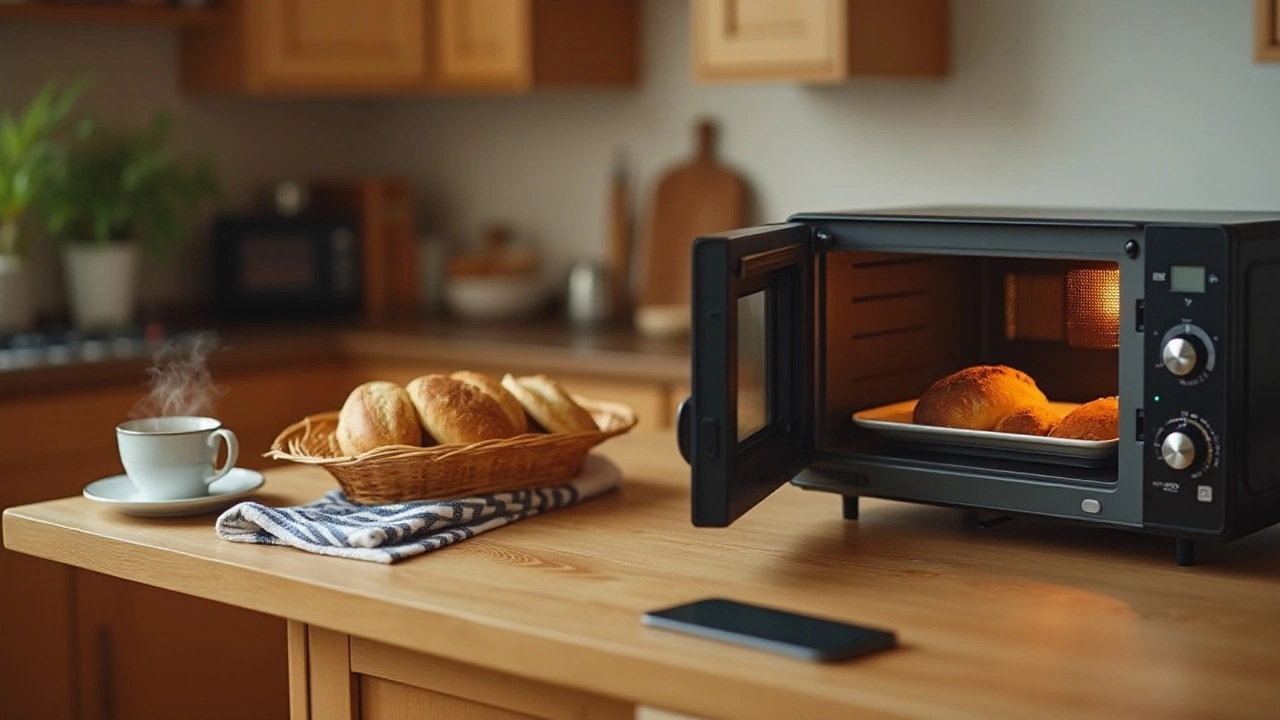
Microwave ovens are essential appliances due to their convenience in heating food. However, they can encounter several problems over time. The most frequent cause of microwave failure is a faulty door switch. This article discusses common microwave problems, how to identify them, and offers practical guidance on how to handle these issues.

Spotting the two most common electric stove problems can make repairs easier. Learn how to catch signs like faulty burners and control issues with clear, helpful steps.
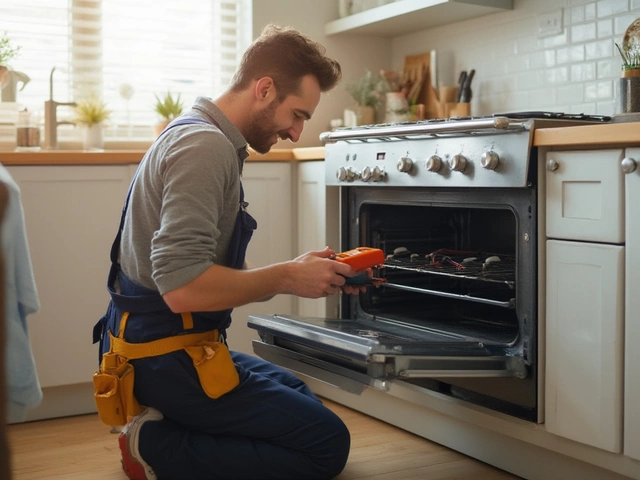
Wondering if an electrician can fix your electric oven? Get the facts, tips, and expert advice you need on diagnosing and repairing broken ovens.
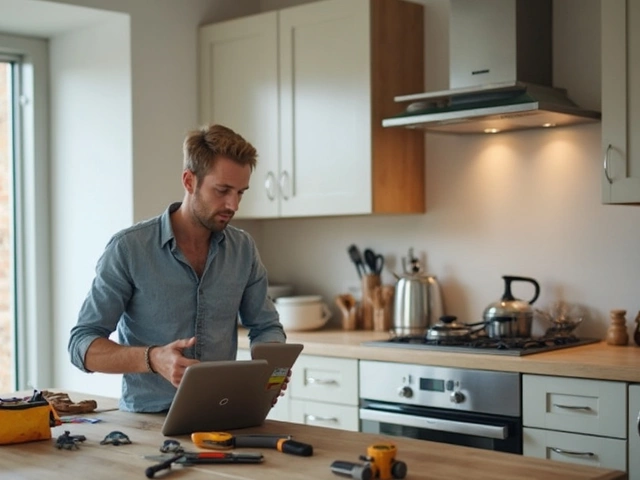
Thinking about swapping out your extractor fan? This article breaks down when you really need a licensed electrician and when you might handle it yourself. Learn what risks and rules are involved, plus some practical tips for a painless install. Get clear answers on costs, permits, and what can go wrong if you take shortcuts. If you want fast, safe, and lasting results, this guide walks you through everything step-by-step.
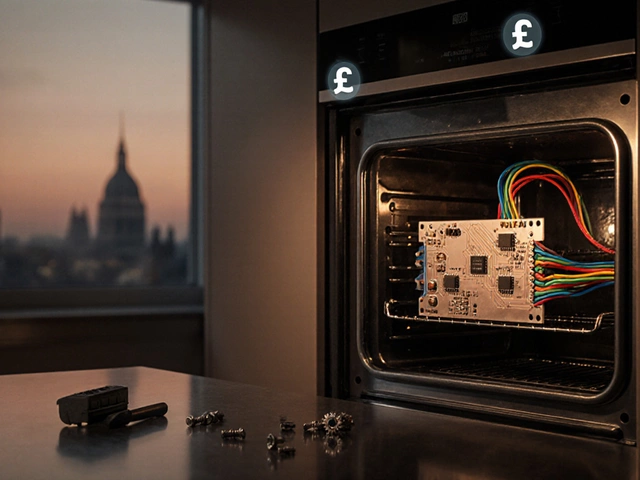
Learn the typical UK price for an oven control board, factors that affect cost, DIY steps, and when to call a professional in 2025.
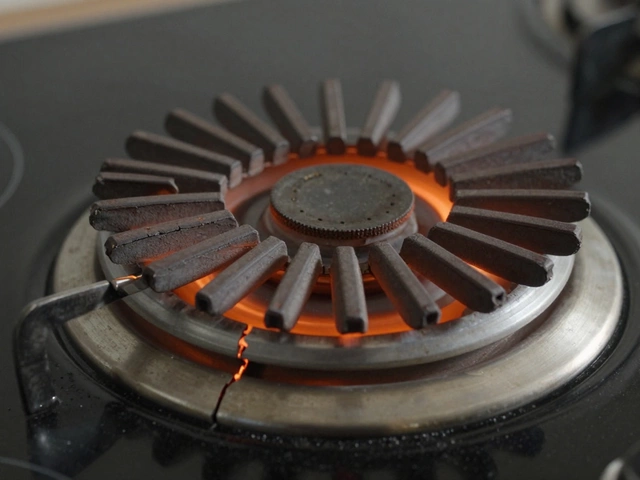
Learn how to tell if your electric stove element is bad with simple visual checks, multimeter tests, and common signs of failure. Save money by diagnosing and replacing it yourself.